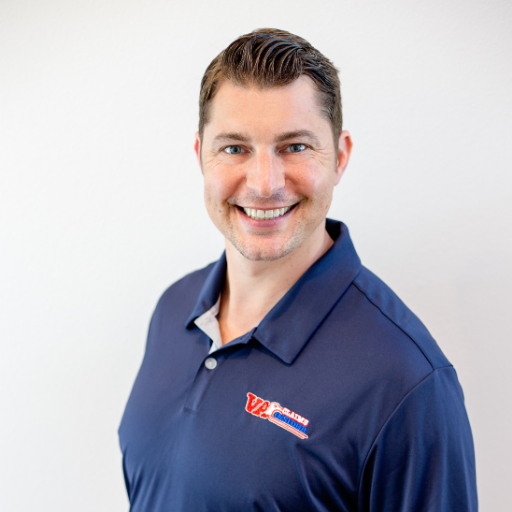
Sleep Apnea Secondary to Tinnitus: Is There a Connection?
Fellow veterans, I know many of you are dealing with both sleep apnea and tinnitus, and you’re probably wondering: Can you file a claim for sleep apnea secondary to tinnitus? The answer is yes, but it requires a solid claim strategy, strong medical nexus evidence, and a clear understanding of secondary service connection by aggravation.
Tinnitus, which is that constant ringing or buzzing in your ears, can absolutely disrupt your sleep. If that lack of sleep “aggravates” obstructive sleep apnea (OSA), then you’re looking at a secondary VA claim. And while tinnitus and sleep apnea might not be directly related, there’s enough medical research to support principles of aggravation between the two conditions.
All right, let’s break it down in-detail so you can file a winning VA disability claim for sleep apnea secondary to tinnitus.
How Tinnitus Can Potentially Aggravate Sleep Apnea
Veterans who suffer from tinnitus often experience fragmented sleep, making it difficult to get the rest they need. When you’re sleep-deprived, it’s easier for sleep apnea to worsen. Here’s how it works:
- Two-Step Aggravation and Sleep Fragmentation: Veterans with tinnitus frequently deal with insomnia or fragmented sleep. That constant ringing in your ears keeps you from getting deep, restorative sleep. Over time, this poor sleep quality increases your risk of developing sleep apnea, because your body struggles to maintain normal breathing during disrupted sleep cycles. In this case, the tinnitus has aggravated insomnia, which has aggravated sleep apnea in a two-step theory of aggravation.
- Mental Health Impact: Let’s be real — tinnitus sucks, and it takes a toll on your mental health. Many veterans dealing with tinnitus also have anxiety and depression, which are major risk factors for sleep apnea. Your brain is in overdrive trying to deal with that annoying ringing, and that stress keeps you from relaxing, which can worsen or even cause sleep apnea.
- Oxygen Deprivation: Sleep apnea can cause periods of low oxygen during sleep (hypoxia). This lack of oxygen can damage the hair cells in your inner ear, worsening your tinnitus. It’s a vicious cycle: sleep apnea makes your tinnitus worse, and your tinnitus makes it harder to sleep, feeding into the sleep apnea.
What Does Current Medical Research Say?
Here’s five medical research studies that explore the connection between tinnitus and sleep apnea, providing insight into how the two conditions may interact or aggravate each other:
1. Sleep Apnea and Tinnitus: Low Oxygen Levels and Inflammation
Research suggests that obstructive sleep apnea (OSA) can contribute to the development or worsening of tinnitus due to hypoxia (low oxygen levels). During apnea episodes, the lack of oxygen can damage the delicate hair cells in the inner ear, leading to tinnitus. Inflammation caused by repeated sleep disruptions also plays a role, making tinnitus louder and more disruptive. Treatment with CPAP therapy has been shown to help alleviate tinnitus symptoms by improving blood oxygen levels and reducing inflammation.
2. Sleep Apnea Contributes to Hearing Loss and Tinnitus
A study from the Sleep Centers of Middle Tennessee discusses how sleep apnea’s impact on oxygen levels may damage the inner ear, leading to hearing loss and tinnitus. Frequent high-frequency snoring is one mechanism that may directly contribute to tinnitus. Additionally, untreated sleep apnea increases blood pressure, which can further exacerbate tinnitus due to reduced blood flow to the auditory system.
3. Tinnitus and Sleep Apnea: Sleep Fragmentation
Another study found that sleep fragmentation, a hallmark of sleep apnea, significantly worsens tinnitus symptoms. People with both conditions often report that tinnitus becomes more noticeable during periods of poor sleep. Addressing sleep apnea through CPAP therapy has shown to help alleviate the severity of tinnitus in some cases.
4. Association Between Sleep Disorders and Tinnitus
A meta-analysis explored the broader connection between sleep disorders, such as sleep apnea, and tinnitus. The study noted that 69% of tinnitus patients reported poor sleep quality, suggesting that sleep disturbances exacerbate tinnitus symptoms. In many cases, treating sleep apnea can result in improved sleep and a reduction in tinnitus intensity.
5. Tinnitus and Sleep Apnea in Patients with Hearing Loss
Research has shown that patients with both sleep apnea and hearing loss are more likely to experience tinnitus. A study from Albany Medical College found that those with sleep apnea had a 30% higher risk of hearing loss, which in turn contributed to tinnitus. By addressing the underlying sleep apnea, patients often find some relief from tinnitus symptoms.
These studies highlight the interconnectedness between sleep apnea and tinnitus, suggesting that managing sleep apnea can also improve tinnitus symptoms. For veterans, this connection can be vital in pursuing a secondary VA claim for sleep apnea caused or aggravated by tinnitus.
How Does the VA Rate Sleep Apnea
Sleep apnea as a secondary disability is rated under 38 CFR § 4.97, Diagnostic Code (DC) 6847. Here’s the breakdown of how the VA rates sleep apnea based on its severity and impact:
- 100% Sleep Apnea VA Rating: Chronic respiratory failure, carbon dioxide retention, cor pulmonale (right-sided heart failure), or requiring a tracheostomy. This rating is reserved for veterans with the most severe sleep apnea.
- 50% Sleep Apnea VA Rating: Requires the use of a CPAP machine. If you’re on a CPAP, this is where most veterans fall in terms of ratings.
- 30% Sleep Apnea VA Rating: Persistent daytime hypersomnolence (excessive daytime sleepiness). If your sleep apnea makes you feel tired and drowsy during the day, but you don’t need a CPAP, you’ll likely get a 30% rating.
- 0% Sleep Apnea VA Rating: Documented sleep apnea with no significant symptoms or need for treatment. This is basically a non-compensable rating.
How to Prove Sleep Apnea as a Secondary Claim to Tinnitus
To connect sleep apnea as a secondary condition to tinnitus, you need a medical nexus letter that ties the two together. Here’s how you can potentially win this high-value VA claim:
- Nexus Letter from a Doctor: A nexus letter is key. You need a medical professional to explain how your tinnitus has caused or worsened your sleep apnea. For example, your doctor could explain how the constant noise in your ears disrupted your sleep, leading to insomnia, which eventually aggravated your sleep apnea. They must clearly state that your sleep apnea is “at least as likely as not” secondary to your tinnitus.
- Medical Records: Gather your medical records that document both conditions. You’ll need to show your history of sleep disturbances caused by tinnitus, any treatments for insomnia, and a sleep study confirming your sleep apnea diagnosis.
- CPAP Documentation: If you’re using a CPAP machine, make sure to document your use. The VA takes this seriously, as it’s a major factor in determining whether you’ll receive a 50% rating. Compliance with CPAP therapy is strong evidence that your condition requires ongoing treatment. You can take a picture of your CPAP machine and upload it in support of your VA claim for sleep apnea.
- Mental Health Evidence: If your tinnitus has contributed to anxiety or depression, make sure to include this in your claim. Mental health conditions can make sleep disorders worse, which will strengthen your case for a secondary service connection.
- Buddy Statements: Don’t underestimate the power of buddy statements. Have your spouse or family members testify to how your tinnitus has kept you awake at night, leading to more severe sleep apnea symptoms over time. They can provide first-hand accounts of your struggles with both conditions.
Final Thoughts
Claiming sleep apnea secondary to tinnitus is possible with the right approach and evidence. The key is to provide a strong nexus between the two conditions, backed by solid medical records and a detailed nexus letter. If you’re using a CPAP machine, make sure to document that thoroughly to secure the 50% rating.
Sleep apnea is rated from 0% to 100%, and most veterans dealing with this condition fall under the 50% category if they require a CPAP machine. By connecting your sleep apnea to your service-connected tinnitus, you can maximize your compensation and get the benefits you deserve.
Source List
- BlueSleep. “The Curious Link Between Sleep Apnea and Tinnitus.” BlueSleep, www.bluesleep.com/tinnitus-sleep-apnea-link. Accessed 5 Sept. 2024.
- Sleep Centers of Middle Tennessee. “Tinnitus and Sleep Apnea are Connected — Here’s Why.” Sleep Centers of Middle Tennessee, www.sleepcenterinfo.com/tinnitus-sleep-apnea-connection. Accessed 7 Sept. 2024.
- ApneaMed. “Wait, Tinnitus Causes Sleep Apnea?” ApneaMed, www.apneamed.org/tinnitus-causes-sleep-apnea. Accessed 4 Sept. 2024.
- Healthline. “Tinnitus and Sleep Apnea: How Are They Related?” Healthline, www.healthline.com/health/tinnitus-sleep-apnea-connection. Accessed 6 Sept. 2024.
- Albany Medical College. “Tinnitus and Hearing Loss in Sleep Apnea Patients.” Journal of Otolaryngology Research, Albany Medical College, www.ncbi.nlm.nih.gov/pubmed/29203520. Accessed 7 Sept. 2024.
Fellow Vets: Are You Sick and Tired of Fighting the VA Alone?
I’m Brian Reese, the VA Claims Insider, and I’m here to help you INCREASE your VA rating FASTER — even if you’ve already filed, been denied, gave up, or don’t know where to start.
If you’re stuck, frustrated, and underrated … I’ve got your six!
There’s always another path available to you, and I’m committed to helping you achieve VA claim victory.
My process starts with a one-on-one phone call so we can get to know your unique claim situation.
We’ll identify where you stand now, where you want to go, and how we make it happen with the right medical evidence.
If we nail your VA claim strategy, the tactics become simple and easy!
Through this gap analysis process, we’ll build a personalized VA claim strategy tailored to your needs — designed to give you the best possible chance of securing the VA rating and compensation you’ve earned for serving our country.
>> Click Here to book your FREE consultation now!
About the Author

Brian Reese is one of the world’s top VA disability benefits experts and the #1 bestselling author of VA Claim Secrets and You Deserve It. Frustrated with the VA claim process, Brian founded VA Claims Insider to help disabled veterans win their VA disability compensation faster. He has served over 10 million military members and veterans since 2013. A former Air Force officer, Brian deployed to Afghanistan in 2011. He is a Distinguished Graduate from the U.S. Air Force Academy and holds an MBA from Oklahoma State University, where he was a National Honor Scholar.
